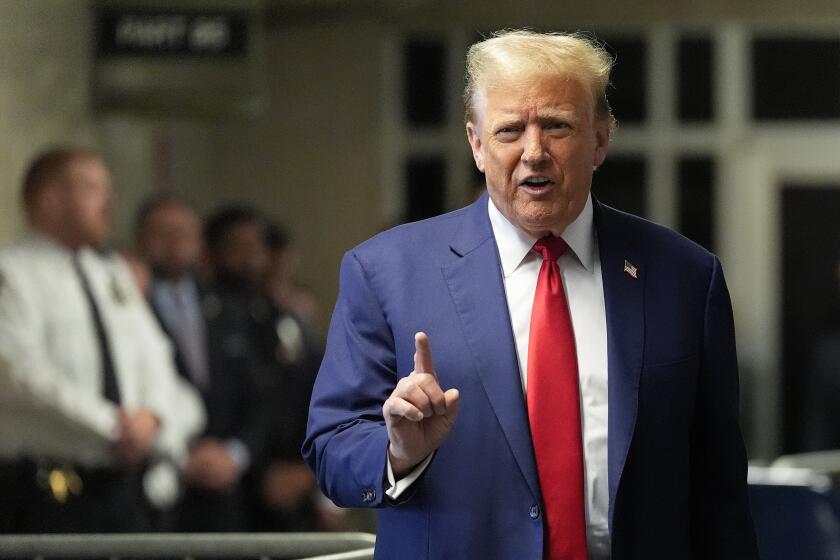Colombia’s Get-Tough Guy
While narco-guerrillas and paramilitary armies burned voting materials in distant rural areas, millions of Colombians lined up in scorching heat and soaking rain Sunday to reaffirm their commitment to democracy by electing a new president. Defying violent intimidation, the people showed their resilience. But in selecting conservative Alvaro Uribe--who campaigned on a promise to get tough on the terrorists who had kept the country at war for almost four decades--they also showed that their patience was thin.
For almost four years, President Andres Pastrana tried to bring peace by negotiating with Colombia’s leftist rebels. The experiment failed. The Switzerland-size piece of land ceded by the government was used by the guerrillas to produce illegal drugs, launch offensives on civilians, hide kidnapped citizens and stash weapons bought with drug money. Not once did the rebel leadership sit down with the government to discuss peace. The electorate’s message to Uribe: Restore order and return this country to civility. Pronto.
For the record:
12:00 a.m. June 6, 2002 For The Record
Los Angeles Times Thursday June 06, 2002 Home Edition California Part B Page 14 Editorial Pages Desk 1 inches; 37 words Type of Material: Correction
Colombia: An editorial May 30 erroneously said that Colombia’s former President Andres Pastrana and the chief rebel leader never met to discuss peace. They met three times, though no progress toward peace was made.
Which is, of course, easier said than done. Colombia’s economy is stagnant and its external debt hovers around $40 billion. Unemployment is about 20%, and half the population of about 42 million lives in poverty. Meanwhile, the guerrillas have paralyzed much of the country’s economic activity by continuing to blow up oil pipelines, bridges and roads.
Uribe, whose inauguration is in three months, has yet to send the United States an official wish list. But he has made clear that he wants to keep alive the trade pact that eliminates tariffs on certain products from Andean countries. He’s also seeking a continuation of American military aid, but, like Pastrana, would like the U.S. to lift the restriction that it be used only to fight drugs. This makes sense, as it is impossible to separate guerrilla narco-trafficking from guerrilla war.
Critics vaguely accuse Uribe of ties to paramilitary groups, but by surrounding himself with such respected people as former national Police Chief Rosso Jose Serrano and Vice President and former civic leader Francisco Santos and by keeping Luis Alberto Moreno as ambassador to the U.S., Uribe bolsters his legitimacy. Now his actions must prove that he stands as opposed to the paramilitary armies as he does to leftist drug terrorists.
More to Read
Start your day right
Sign up for Essential California for news, features and recommendations from the L.A. Times and beyond in your inbox six days a week.
You may occasionally receive promotional content from the Los Angeles Times.






